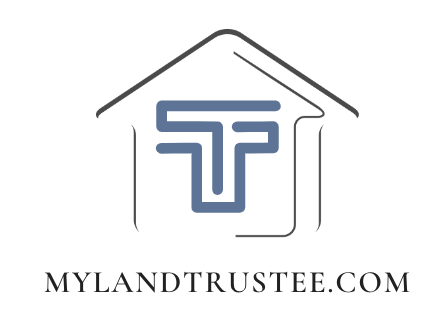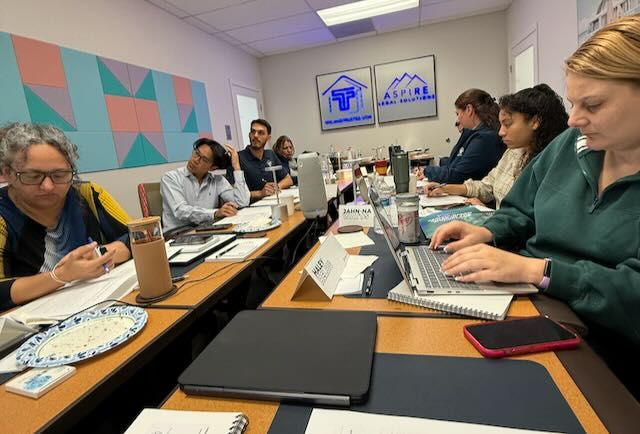|
|
|
|

Trust This.
By Joseph E. Seagle, Esq. ● Jan 17, 2025
Smart Brevity® count: 6.5 mins...1719 words
👋 Happy Friday! Today is National ⚓ Popeye the Sailor Man Day. This year, Popeye falls into the public domain and may be used freely by anyone needing a cartoon sailor with big forearms, a skinny girlfriend, and a love of spinach.
Situation Awareness: Our offices are closed on Monday, January 20, during MLK Day. We will be back in the office on January 21.
📣 Come hear me speak on mastering the use of land trusts in subject-to transactions on February 1 from 9:00 to 11:00 a.m. at 3801 Avalon Park E Blvd, Ste 200 in Orlando.
|
|
1 big thing: 📢 Sixth Circuit Ruling and Your Online Privacy: What You Need to Know

The Sixth Circuit Court recently ruled against the Federal Communications Commission’s (FCC) authority to enforce key net neutrality protections. This decision weakens federal oversight of internet service providers (ISPs), potentially exposing consumers to new risks around data privacy and anonymity.
Why it matters: For business owners and real estate investors who rely on anonymity in public records, this ruling raises critical questions about how online data is handled and whether ISPs can be trusted to maintain your digital privacy.
-
Weakened Oversight: Without net neutrality rules, ISPs may have more freedom to monitor, collect, and even sell your internet usage data, including searches, emails, and online transactions.
-
Risk to Anonymity: Investors using legal strategies, such as LLCs, land trusts, or non-economic members, to shield ownership may find that their internet activities expose them to unintended connections.
-
Less Transparency: Reduced FCC oversight may lead to ISPs creating data-sharing agreements with third parties without clear disclosure or consumer consent.
How It Impacts You
Maintaining Anonymity Becomes More Challenging:
-
ISPs may track and store browsing data, which could inadvertently link you to entities or properties you own.
-
Without strong regulations, there’s an increased risk that third parties could subpoena or purchase your digital activity.
Privacy Protections Are Now Patchwork:
-
The absence of federal rules shifts the burden to state laws and self-regulation by ISPs.
-
Tools like VPNs, encryption, and secure browsers are now essential but require careful implementation to be effective.
What You Can Do
Here are actionable steps to protect your online privacy and maintain anonymity in light of the Sixth Circuit ruling:
1️⃣ Secure Your Internet Activity:
-
Use a VPN: Choose a reliable VPN to encrypt your internet traffic and mask your IP address. We have used WindScribe as our VPN app on our phones and computers when we’re on public WiFi or in geographic areas that won’t permit us to access resources we need. It’s all they do, and we’ve never been disappointed in their service.
-
Switch to Encrypted Email Services: Services like StartMail offer end-to-end encryption for sensitive communications.
-
Browse Anonymously: Use privacy-focused browsers like Brave or Tor.
-
Use strong passwords (and not the same one for multiple sites). A good password manager like Dashlane is a must-have, together with two-factor authentication
2️⃣ Limit Data Sharing:
-
Avoid ISP-Provided Email Services: Use independent, encrypted email platforms that aren’t tied to your ISP.
-
Opt-Out of Data Collection: Some ISPs allow you to limit data tracking—check their privacy settings.
-
Use a platform like DeleteMe.com to remove your information from data broker’s sites across the net. Data brokers aggregate and sell your information based on your browsing, driving, and other data history. Having this information deleted across the net goes a long way to maintain your privacy.
3️⃣ Harden Your Network:
-
Encrypt Your Wi-Fi: Ensure your home network uses WPA3 encryption and change default router passwords. If you have guests or kids who use the internet for gaming or social media, consider setting up separate WiFi networks on your routers to keep their traffic and devices away from your business traffic.
-
Consider Using Private DNS: Services like Cloudflare DNS (1.1.1.1) reduce tracking by ISPs.
4️⃣ Leverage Legal Protections:
-
Work with Attorneys to Structure Assets Securely: We can help you use tools like multi-member LLCs, land trusts, manager trusts, mortgage-holding trusts, and anonymity clauses to shield ownership in public records.
-
Stay Updated on State Privacy Laws: States like California and Florida are advancing privacy laws that could complement your asset protection and privacy strategies.
5️⃣ Advocate for Stronger Protections:
Support Privacy Legislation: Push for laws that restore net neutrality and ensure consumer privacy protections.
Educate Legislators: Share how privacy gaps can disproportionately harm professionals managing sensitive or confidential data.
The bottom line:
-
This ruling is the first one since SCOTUS overruled the Chevron Deference test in the Loper Bright case.
-
It underscores the growing importance of personal and professional digital security.
-
While anonymity strategies for real estate and business remain effective offline, the online dimension of privacy is under increasing threat.
-
Staying proactive with privacy tools and legal strategies will be essential as regulatory frameworks evolve.
|
|
2. China-linked Hack Hits U.S. Agencies: What Entrepreneurs Need to Know

A piece of news buried in other New Year’s Eve news is that Chinese-linked hackers infiltrated workstations at the U.S. Treasury Department and exfiltrated non-classified documents. They also intercepted the communications of top Treasury officials.
Why it matters: For entrepreneurs and small business owners, the hack underscores the growing threat of cyberattacks and the need for robust security measures.
Driving the news:
-
According to CyberSecurityDive, the Cybersecurity and Infrastructure Security Agency (CISA) reported that Chinese hackers exploited a vulnerability in a widely used file transfer application, MOVEit, to infiltrate federal systems.
-
The Treasury Department is among the affected agencies. It plays a critical role in regulating financial markets and protecting sensitive economic data.
-
According to NPR, this breach is part of a broader trend of state-sponsored cyberattacks targeting U.S. infrastructure and institutions.
What they’re saying:
-
CISA Director Jen Easterly emphasized the sophistication of the attack, highlighting that “this is not the work of amateur hackers but a highly coordinated effort.”
-
Cybersecurity experts warn that while the immediate targets are federal agencies, downstream impacts could affect businesses interacting with government systems or relying on shared digital infrastructure.
By the numbers:
-
MOVEit vulnerabilities have been exploited in over 200 global organizations this year, affecting millions of users and companies.
-
Data breaches cost U.S. businesses an average of $4.45 million in 2023, a figure that continues to rise.
The big picture:
Cyberattacks are no longer limited to large corporations and government agencies. Hackers increasingly target smaller businesses, often with less sophisticated defenses but with valuable data or access to larger supply chains.
What’s next:
-
Review your cybersecurity posture. Ensure software is updated, firewalls are robust, and staff is trained to recognize phishing attempts. Tools like ThreatLocker, based in Orlando, can protect your workstations and network from such vulnerabilities.
-
Consider cyber insurance. With the rise in attacks, coverage could mitigate financial fallout by paying for forensic analysis of any hack and lawyers to walk you through the required legal notices to customers.
-
Engage experts. A third-party security audit or penetration test can identify vulnerabilities before hackers do.
Bottom line: Entrepreneurs must view cybersecurity as a business imperative, not an afterthought. The federal breach is a stark reminder that the digital frontlines are everywhere — including your business.
|
|
This week, I enjoyed discussing co-living investment strategies with Sam Weger, who owns hundreds of co-living units. Tune in to learn more about this new wave of real estate investing.
Listen in or watch on your favorite streaming platform.
|
|

This portion of Tunnel Road in Asheville is still closed after Tropical Storm Helene's floodwaters tossed up storage trailers and trees from a depot located about 30 feet below and a quarter mile from the bridge where they're now chaotically stacked along with other debris.
Photo: Joe Seagle
|
|
4. Closing Thought: Sacred Cow: “High Risk = High Return”

This week, the Aspire Legal and My Land Trustee crew spent a day in a workshop based on Cy Wakeman's Reality-Based Rules of the Workplace, learning how to avoid wasting time and energy on drama in our lives.
The Big Picture: The conventional wisdom that taking on higher risks guarantees higher returns is a dangerous myth that can derail financial success. Garrett Gunderson’s Killing Sacred Cows challenges this belief, showing how it fosters reckless decision-making and undermines sustainable wealth-building.
Why it matters: This “high risk = high return” mantra pushes investors into volatile ventures, ignoring principles of measured decision-making. Gunderson argues that true financial success stems from managing risks effectively, not blindly embracing them.
The Key Lesson:
-
Risk ≠ Reward: Gunderson explains that risk and return are not inherently correlated. Smart investors focus on strategies that mitigate risks while delivering consistent results. Success isn’t about gambling—it’s about control and clarity.
-
Knowledge is Power: A deeper understanding of investments reduces perceived risk. Gunderson emphasizes building expertise, which transforms high-risk opportunities into calculated, manageable ventures.
-
Abundance over Scarcity: The high-risk mindset often stems from scarcity thinking—believing opportunities are limited and fleeting. Gunderson advocates an abundance mindset: a belief that wealth can be created sustainably without taking unnecessary risks.
Between the Lines: Financial institutions often propagate the high-risk narrative to justify complex, fee-heavy products. Gunderson calls this a self-serving myth that benefits the system rather than the individual investor.
What’s Next: Rejecting the “high risk = high return” myth means prioritizing education, thoughtful planning, and sustainable strategies. Gunderson urges readers to take control of their finances by aligning investments with values and long-term goals, not market hype.
The Bottom Line: Financial freedom isn’t won through reckless gambles. It’s achieved by reducing unnecessary risks, increasing knowledge, and making intentional decisions that grow wealth without compromising peace of mind.
|
|
We hope you found this helpful. We appreciate any feedback, which can be shared by hitting reply or using the feedback feature below.
-
Was this email forwarded to you? Subscribe here.
-
Have an idea or issue to share? Email us.
-
Connect with us using your preferred social media and website links for MyLandTrustee and Aspire Legal Solutions.
-
Our mailing address: PO Box 547945, Orlando, FL 32854-7945
-
Our physical address: 1901 West Colonial Drive, First Floor, Orlando, FL 32804
Be on the lookout for our next issue! 👋
Some of the links in this email may be affiliate links. If you click on these links and make a purchase, we may receive a commission at no additional cost to you. Rest assured, we only recommend products and services we trust and believe in. Your support is greatly appreciated!
|
|
|
|
Was this edition useful?
 

Your responses are anonymous
|
|
|
Powered by

|
|
|














